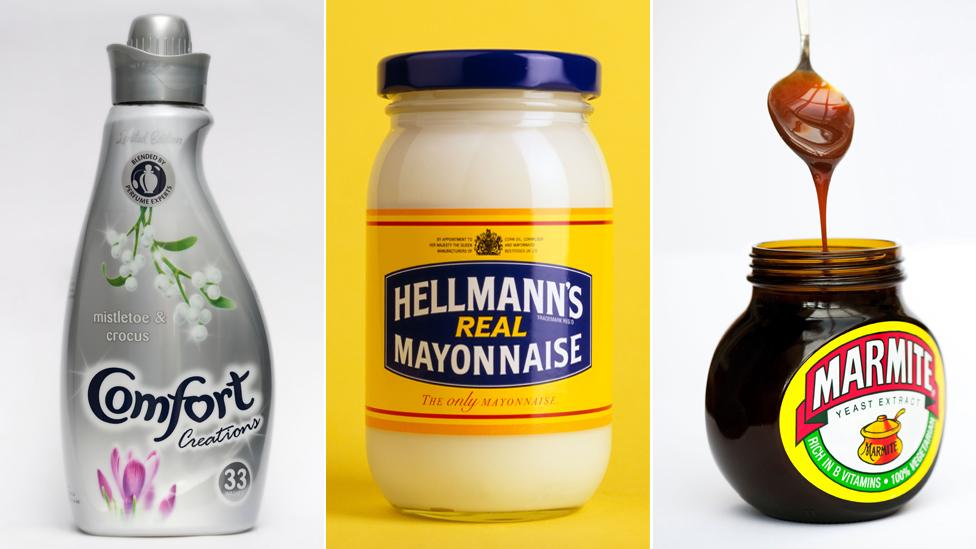The Marmite message: prepare for price hikes
- Published
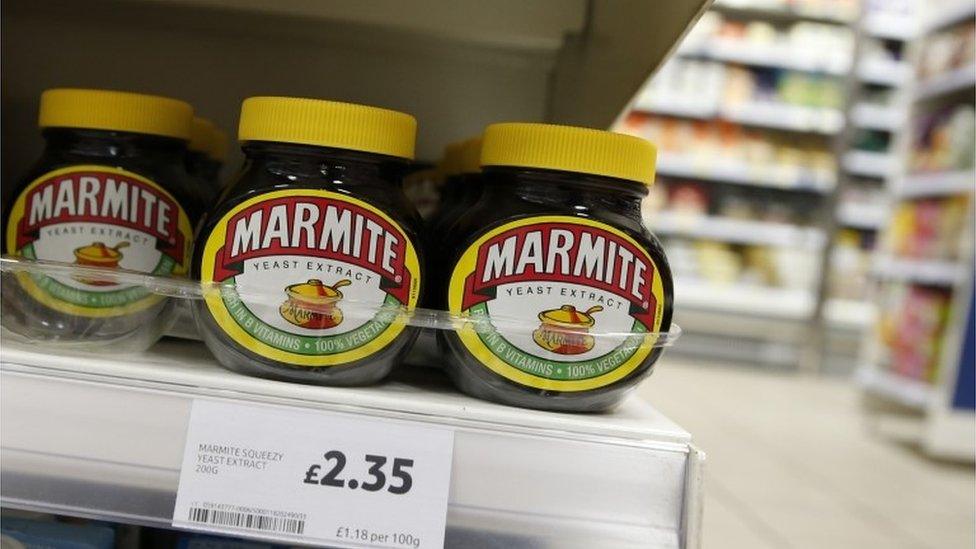
Marmite is famously, or notoriously, binary. It's something you either love or hate. So it's appropriate that it has become the poster product for the effect of the highly divisive and binary Brexit vote.
For one day, anyway. Almost as if it were choreographed by clever PR people, Marmite, Pot Noodles, PG Tips and numerous well-known household soap brands were removed from online sale by Tesco for 24 hours of impasse with its biggest supplier, Unilever.
A day on, they kissed and made up, in a corporate way. The message to consumers was clear: prices are going up. This is not just about Unilever and not just about Tesco. Importing suppliers, for which Unilever is the biggest and most powerful for Fast-Moving Consumer Products, have to raise prices when their products hit the shores of the sterlingzone.
The question raised by the Great Marmite Famine Day is how much of that is absorbed by the importer, how much by the retailer, and how much by the consumer.
The answer will be, in most cases, a bit of all three. It depends on negotiating power, negotiation tactics and who has most room for manoeuvre.
Customers are willing to manoeuvre themselves towards other retailers to an increasing extent. In a tough price war, the big retailers have had their margins squeezed tight. So it is the manufacturers and suppliers who may finding themselves having to give up most.
Rollicking
Such deals are constantly being done in getting goods and services to and from Britain - though less publicly.
With relatively stable currency exchange, they don't have to be re-worked as often. But with a sharp fall in the value of sterling, accelerating in recent days, they have to be re-worked more.
And the prospect of future volatility carries the cost of extra currency risk, for which companies have to put more resource into hedging.
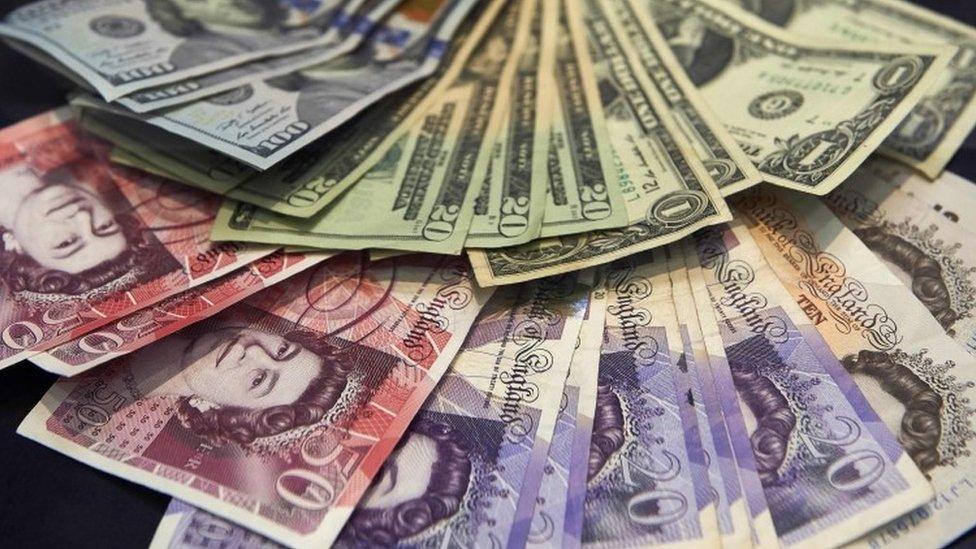
The falls have been pretty sharp since 23 June and the European Union referendum. Against the US dollar, sterling has weakened from $1.48 at the start of the year, and close to that on referendum day, to $1.22 this week.
Anything priced in dollars, including oil, will have risen in cost when translated into pounds, and by nearly 18%.
That also goes for the dollar profits made by companies such as BP and Shell, which explains why the global companies have had a rollicking good time on the stock exchange.
Less so for motorists. The price of a barrel of oil last January fell to $30, which then exchanged for £20.25. This week sees it trading at $52, which translates to £42.60. The double whammy has more than doubled the cost of crude in Britain.
Travel budget
While the pound has rarely been so weak against the dollar, it has had a more volatile time against the euro, so this week hitting 1.11 is not as low as it fell during the Great Recession.
But over the past 12 months, the pound has fallen from 1.36 euros. That is an 18% drop in sterling's value.
The most obvious impact is for those of us fortunate enough still able to travel abroad. The weakening of sterling has a direct hit on the cost of anything you buy in the US or the eurozone.
But for the economy as a whole, the Bank of England looks after an index comprising a basket of currencies that represents the relative importance of the UK's trading partnerships.
A year ago and at the start of 2016, it was at 90. By the referendum day, it was at 88. It's now fallen below 74. That's a fall of nearly 18%.
German rival
The language of sterling 'weakening' suggests it's a sign of economic weakness. Yet in some ways, it is exactly what the British economy needed, and it is what the Bank of England had been wanting to happen.
While the pound remained at its previous levels, it was sustaining an unsustainable gap between the amount the UK was importing and the amount it was exporting. That trade deficit was a measure of the markets' confidence in Britain's future economic prospects, measured by the amount that investors were willing to re-cycle back into the country.
That is, for every pound that has been leaving Britain, it either has to be spent on goods or services being exported from Britain, or it has to be put into assets denominated in sterling. That includes companies which foreigners have been snapping up, or property, with London a notable magnet for international investors in bricks, mortar, steel, glass and stucco.

The lower exchange rate for sterling should help companies and workers compete with foreigners. Exports look cheaper when their pound price is converted into other currencies. That goes for tourism, which has already seen a boost from the weakness of the pound.
And it works also for those who compete with foreign firms on their home turf. If you're making cars for sale in Britain, your German rival has found it 18% harder to sell into the UK.
Poundland
As with Marmite, some of those costs may be absorbed by the manufacturer, some by the retailer, but in most cases, a lot of it is going to be passed on to the customer. And the indigenous British manufacturer should be able to grow market share.
For instance, the list price of a Ford Edge went up by £750 at the start of last month, though the effect on the car market will be partly masked by the dominance of personal contract finance deals.
The flipside of that is that import costs are already going up. The average British-built car is made up of 57% imported components and materials. So that boosts the cost of the car that is then sold, for import or export.
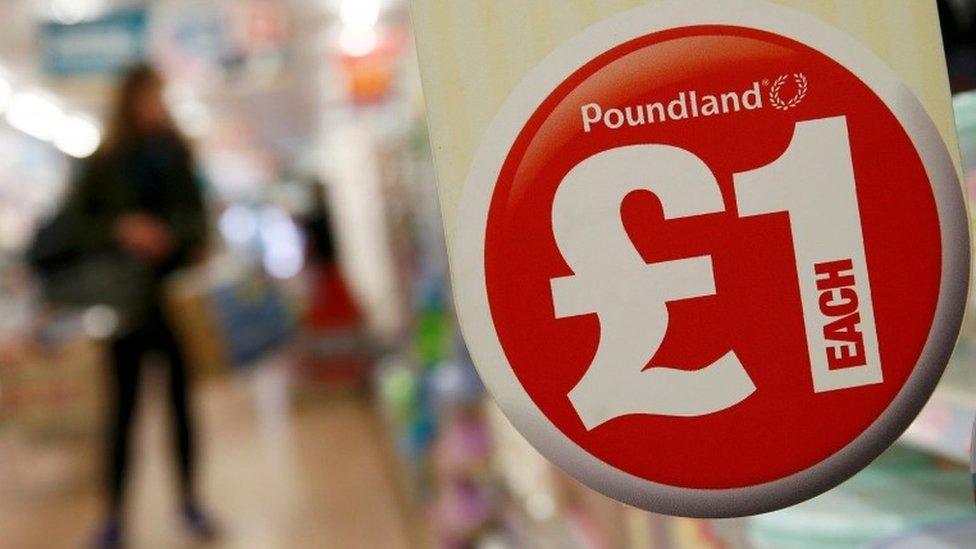
Or take a slice of shortbread - Dean's of Huntly, for instance. Reuters reported this week from Moray that it is weighing up the impact of increased costs for imported butter, flour and sugar. Only 8% of sales are exports. That could be grown, if there's money to invest in expanding markets.
But Bill Dean, the boss, has put a £3m investment on hold. And instead of assuming he'll just raise prices, he's already looking at slimming the company and the workforce.
If he thinks he's got worries, imagine what it must be like trying to run Poundland. Although a big high street gainer in the post-crash years, its name ties it to a depreciating currency, and despite the name, it too depends on imports.
It might want to prepare for a rebrand to TwoPoundLand.
- Published13 October 2016
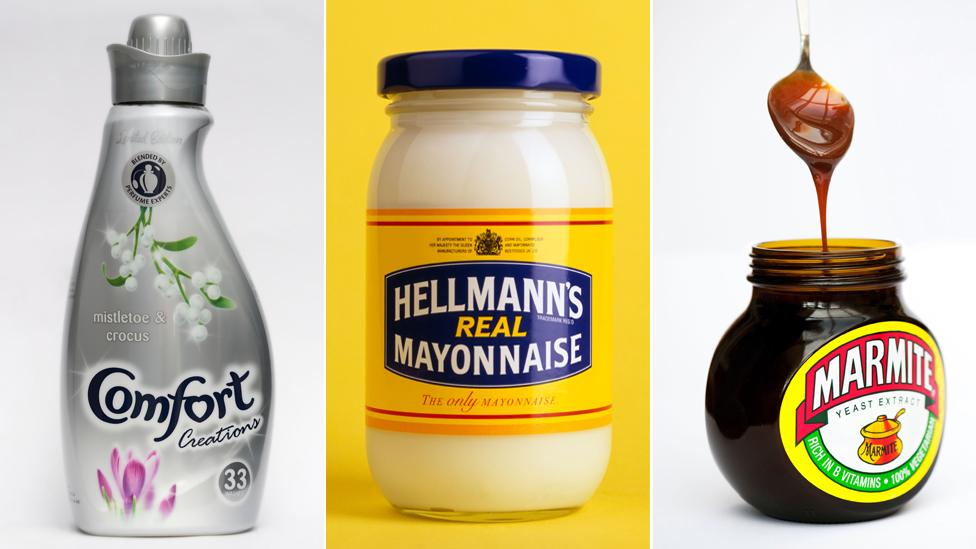
- Published13 October 2016
